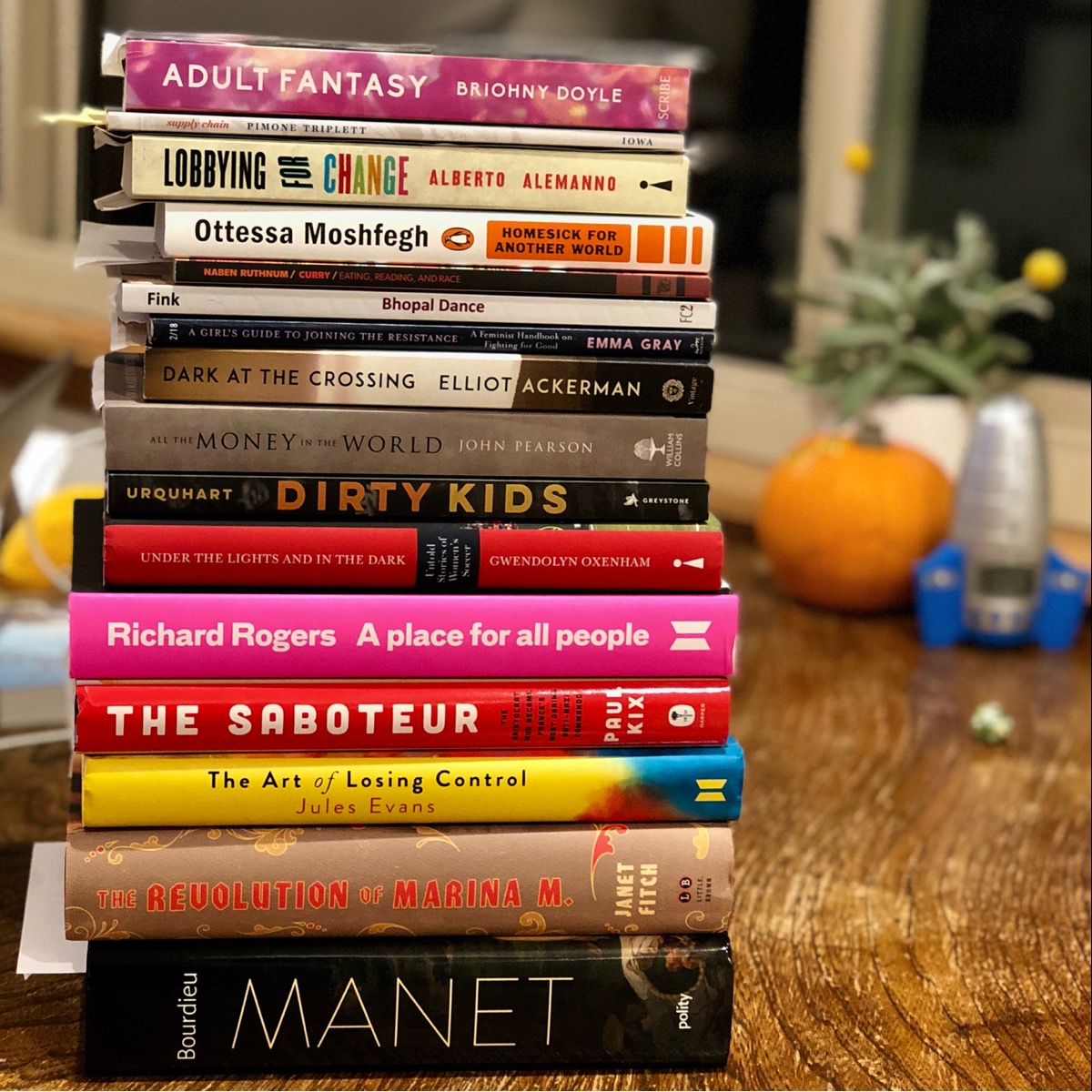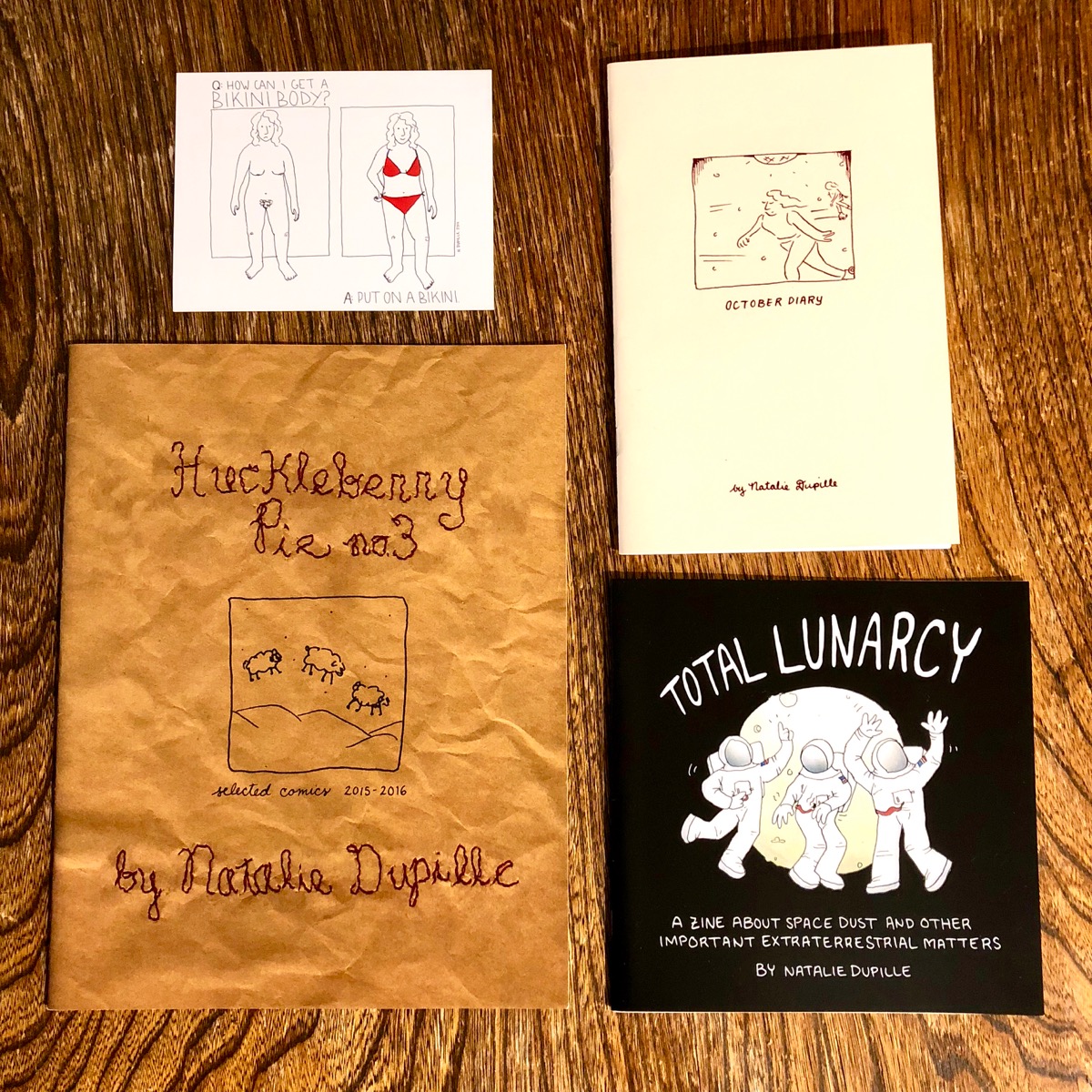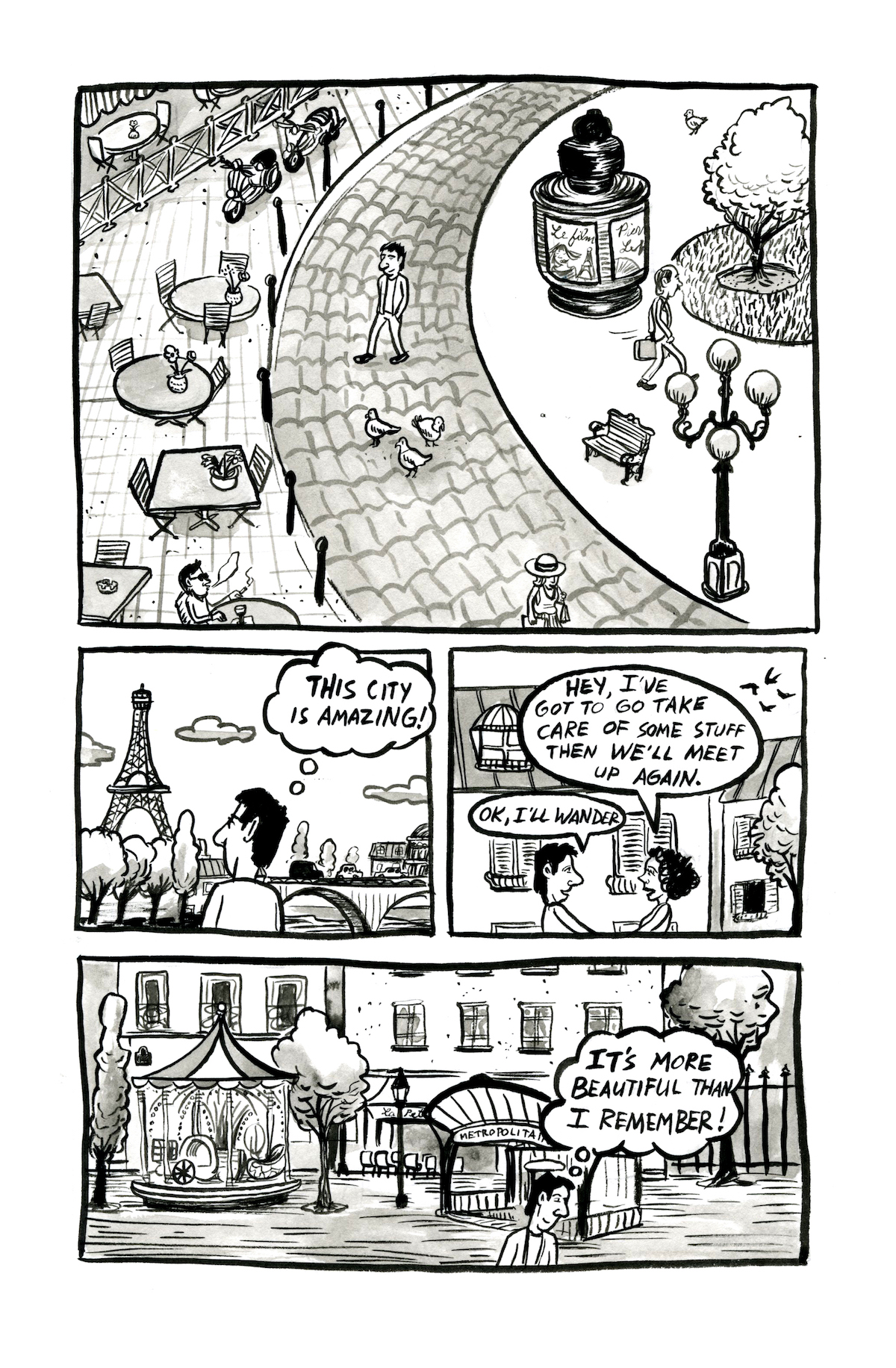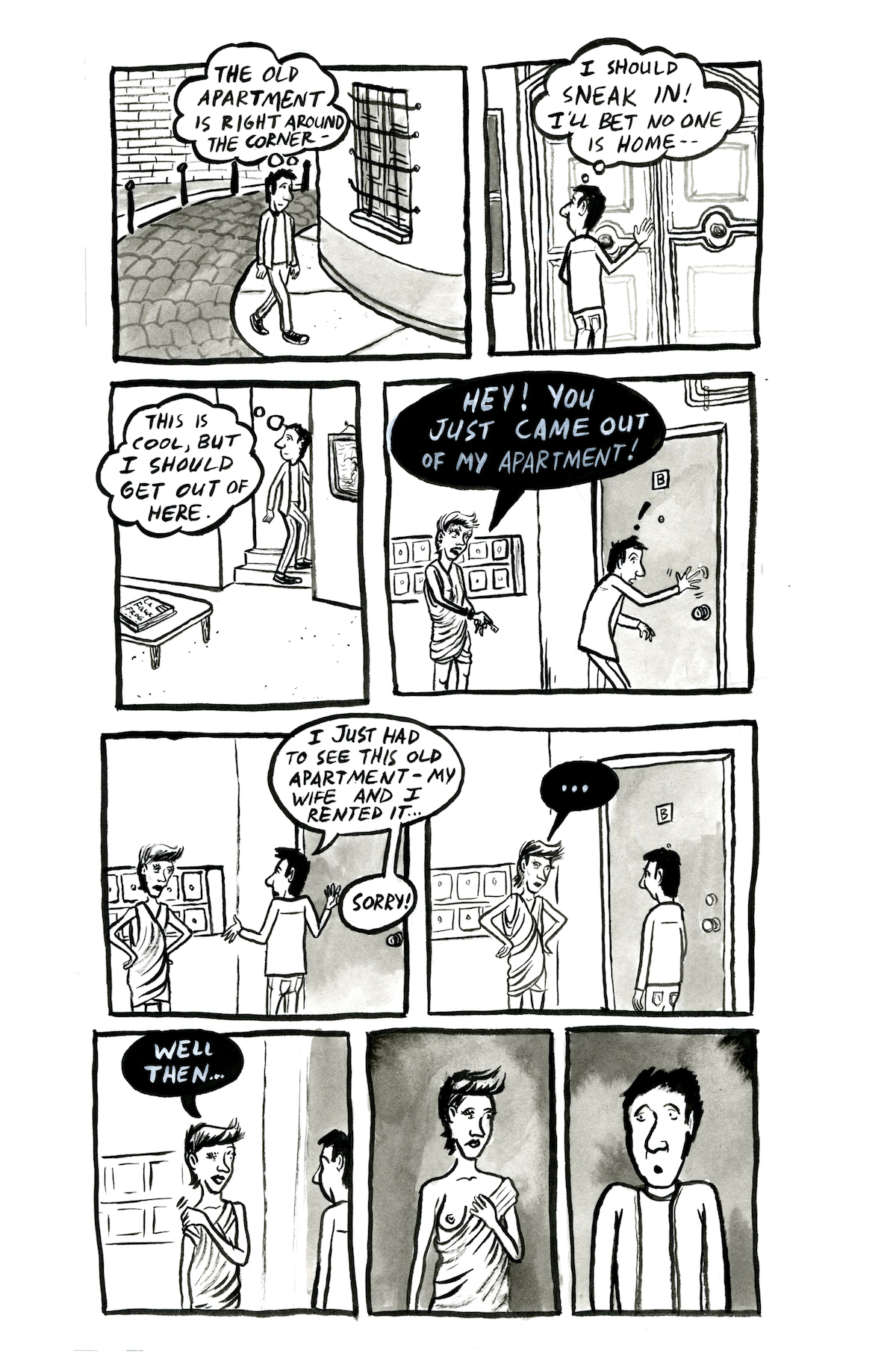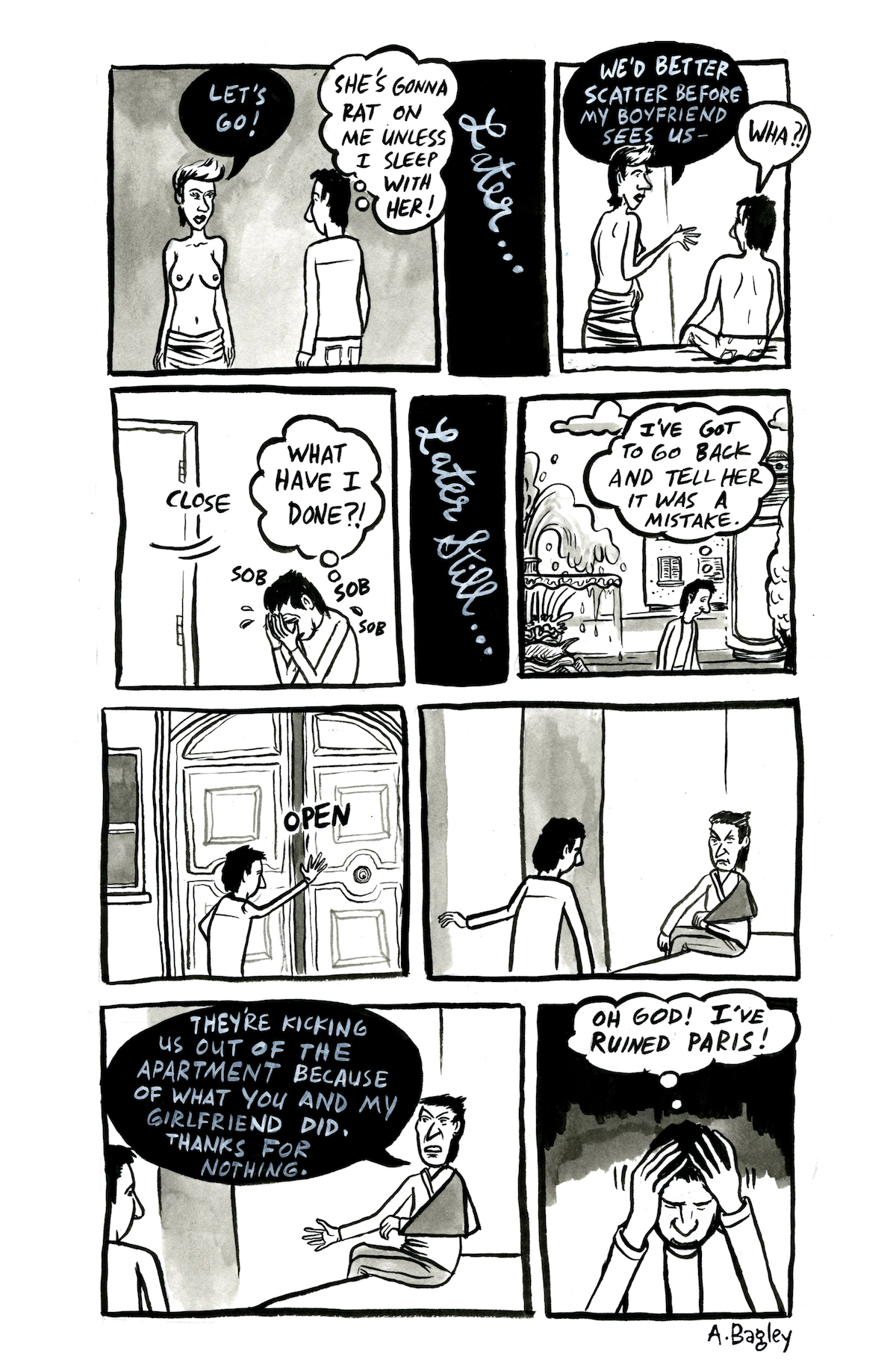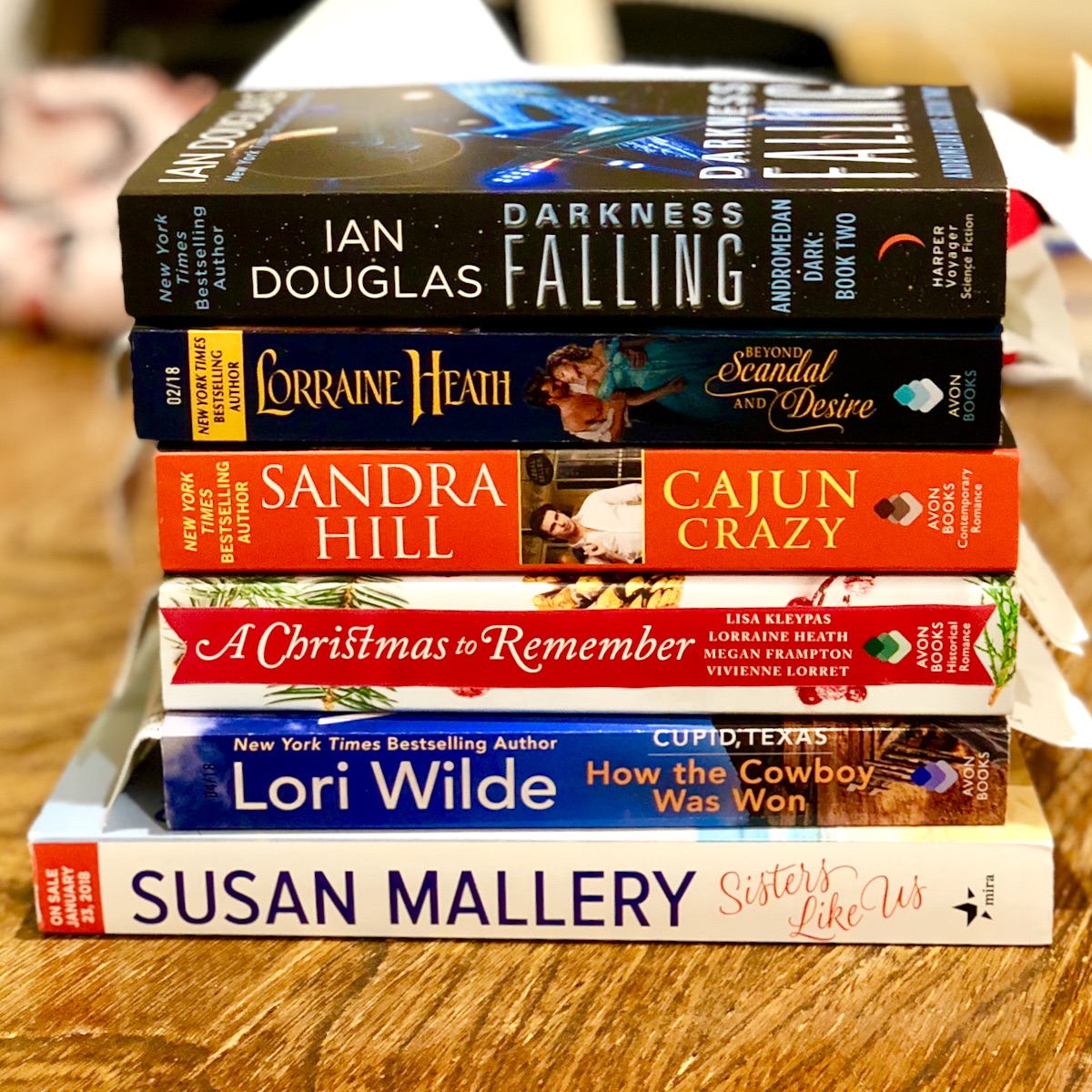Portrait Gallery: Sara Wachter-Boettcher
Each week, Christine Larsen creates a new portrait of an author for us. Have any favorites you’d love to see immortalized? Let us know
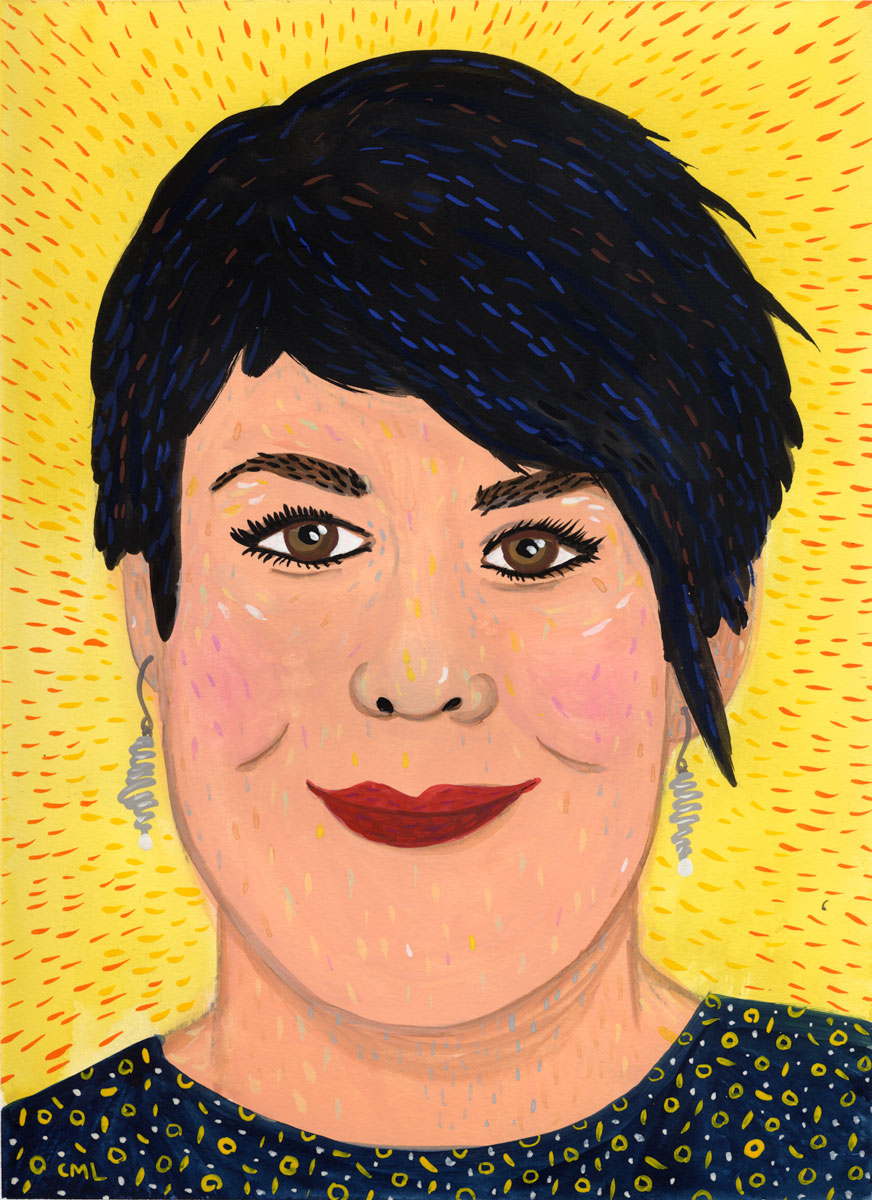
Friday, November 17th: Technically Wrong Reading
Subtitled Sexist Apps, Biased Algorithms, and Toxic Tech, in Technically Wrong, Sara Wachter-Boettcher explains why the male bias in the tech industry is creating a culture that places the needs and interests of men light years ahead of those of women or nonbinary individuals.
Impact Hub, 220 2nd Ave S, https://impacthubseattle.com, 7:30 pm, $5.
Criminal Fiction: Winter in review
Every month, Daneet Steffens uncovers the latest goings on in mystery, suspense, and crime fiction. See previous columns on the Criminal Fiction archive page
Winter’s shorter days are a terrific time to dig into writer interviews, old and new. One of my favorite bookish series is the New York Times’ "By the Book" column, which embraces a rich selection of crime-fiction authors including Louise Penny, Don Winslow, Michael Connelly, Paula Hawkins, and Philip Kerr.
And it’s in a different format and less high-profile, but the fall issue of Johns Hopkins Magazine has a fascinating interview with Chester Himes biographer Lawrence Jackson.
Finally, as someone who got to visit the first two UNESCO Cities of Literature, Edinburgh and Melbourne, on a wonderful work trip and appreciating what this particular recognition entails, it’s terrifically exciting to see Seattle welcomed into that particular fold.
Reading around: new titles on the crime fiction scene
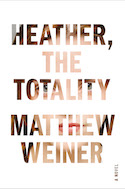
Mad Men creator Matthew Weiner’s debut novel, Heather, the Totality (Little, Brown), may be slim but it packs a substantial punch. This is a tale in which every character — the eponymous Heather, her parents Mark and Karen, and a dude from the other side of the tracks, Bobby — has an oddly creepy element to them, so as a reader, there’s nowhere to hide. It is also a trenchant reminder of the critical damage an excess of obsessiveness can do, no matter who you are or what your intent might be.
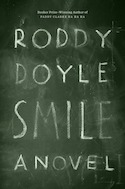
A lonely man hangs out in his local bar, in Roddy Doyle’s Smile (Viking), bathed in memories of his no-longer-existent happy, indulgent relationship. He was a writer, a music critic; she succeeds as a celebrity chef, television series and all. As the book opens, he’s hit rock bottom, keeping a bar-stool warm, when someone from his past recognizes him and strikes up a conversation. Where that conversation goes in this novel of psychological suspense may or may not surprise you, but Doyle’s portrayal of a loving, intimate, empathetic relationship and its original inspiration — the longing of a human heart — will stick in your mind long after the final page.
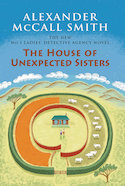
Mma Ramotswe, she of the No. 1 Ladies’ Detective Agency in Gabarone, Botswana, gets caught up in multiple intriguing mysteries in Alexander McCall Smith’s The House of Unexpected Sisters (Pantheon). Why was a hardworking employee suddenly fired — and was it even legally done? Why is someone from Mma Ramotswe’s past turning up like a bad penny? And who is the mystery lady who shares Mma Ramotswe’s name? Ably abetted by her partner-in-crime Mma Makutsi, as well as by friends and family, and armed as always with wisdoms from Clovis Anderson’s The Principles of Private Detection, Ramotswe brings a curious mind and an attentive heart to her work, not to mention plenty cups of comforting redbush tea.
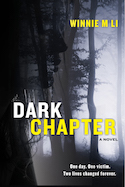
In her acknowledgements, Winnie M Li makes it abundantly clear that her debut novel Dark Chapter (Polis), which begins with the rape of an adult woman, Vivian, by a teenage boy, Johnny, is drawn from personal experience. If anything, this makes the story — which, while nerve-shreddingly explicit in terms of the assault, focuses primarily on the aftermath for both the woman and the boy — all the more raw in its intensity. Despite wandering into stereotype-territory at times, Li’s also produced a riveting, highly empathetic read, one that recently won the UK’s prestigious Not the Booker prize.
The Quintessential Interview: Jon McGregor

On a cold winter’s day, a young girl goes missing near a rural English village. Through the searches and the perpetually open police investigation, her parents seen as both despairing and under suspicion, McGregor delineates the lives and times of the locals: villagers fall in and out of love, lose their jobs and gain new ones; flocks of birds fly south and return, badgers settle in their setts, and newborn foxes tumble over each other in their dens. In Reservoir 13, McGregor, a terrific novelist with the pen of a poet, has woven a mesmerizing tapestry, a tale not so much about a mystery, as about the sometimes-lingering repercussions that a crime can have on the community around it and the inexorable passage of time. McGregor is based at the University of Nottingham, where he also edits the excellent epistolary literary journal The Letters Page.
What or who are your top five writing inspirations?
- For this book in particular, Tom Drury and John McGahern were high on the list
- Readers who got what I was trying to do last time
- Readers who didn't get what I was trying to do last time
- The fear of alternative employment
- Also, coffee
Top five places to write?
- Anywhere with a flat surface, some background noise, and good coffee
- The Specialty Coffee Shop in Nottingham
- Cartwheel Coffee in Nottingham
- Bromley House Library in Nottingham
- Long-distance trains if I've packed a flask of good coffee
Top five favorite authors?
- Lydia Davis
- Alice Oswald
- Tom Drury
- Yiyun Li
- Donald Barthelme
Top five tunes to write to?
- Diamond Mine by Jon Hopkins and King Creosote
- Born into Trouble as the Sparks Fly Upwards by The Silver Mt. Zion Memorial Orchestra & Tra-La-La Band.
- Shakkei by Origamibiro
- Forty Part Motet by Thomas Tallis
- You Are the One I Pick by Felix (fyi these are all albums but if I had to keep getting up to change tracks I would never get any writing done)
Top five hometown spots?
- Broadway Cinema for films and food and bumping into people
- Specialty Coffee and Cartwheel Coffee for amazingly good coffee
- Iberico World Tapas for fine tapas and a place to go with the best company
- Sherwood Forest for getting back in touch with the trees and pretending to be an outlaw
- The Pillar Box for excellent gin and raconteuring
Thursday Comics Hangover: Justice is blind, Justice League is dumb
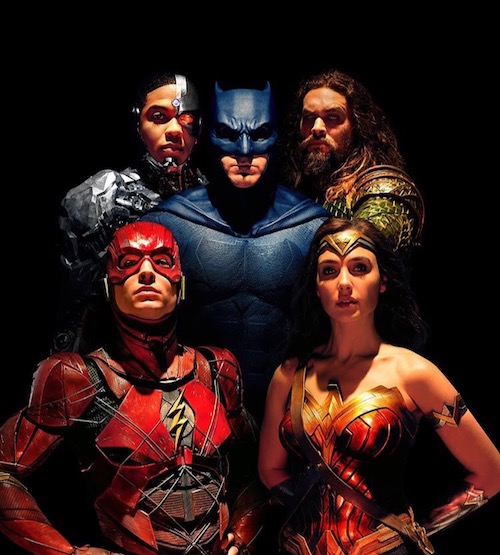
Ben Affleck is the perfect Batman for the era of Donald Trump. He’s huge and he often looks like he can barely move his arms. The nose on his mask is doing something weird that looks odder and odder the more you stare at it. He’s prone to saying gruff things that don’t really make sense. His plans involve talking a lot and not doing anything of value, and they almost always result in the situation getting worse. This is a Batman who is unintelligent, aimless, and way past his prime. Trumpy Batman is supposed to be the guiding light of the Justice League movie, which lands in theaters tonight. The team he puts together is a perfect reflection of Affleck’s surface-obsessed and unthoughtful Batman.
Let’s talk about Cool Aquaman. For decades now, Aquaman has been the butt of easy jokes: he’s got no personality and he talks to fish. Most writers have responded to Aquaman’s laughing-stock status by trying to make him extra-cool. (A recent Aquaman reboot saw the hero order fish and chips at a bar in order to demonstrate that he doesn’t give a shit about his finny friends.) Jason Momoa’s Aquaman, though, is Cool Aquaman taken to his extreme: he’s like a heavy-metal Yukon Cornelius, and he’s such a try-hard that all his coolness veers around into uncoolness again. He’s so fucking desperate to be seen as bad ass that he’s just an embarrassment.
Ezra Miller’s Flash is only slightly better. He’s supposed to be the funny wide-eyed can-you-believe-this-shit audience surrogate, but only about one out of every four of his jokes lands cleanly. The rest are awkward or just plain unfunny. And there’s not really anything to say about Ray Fisher’s Cyborg, a character who is noteworthy only for his ugly body of silvery CGI chunks.
So that leaves Gal Gadot’s Wonder Woman. Rumor has it that after Justice League director Zach Snyder stepped off the film to deal with a family tragedy, fill-in director Joss Whedon added a bunch of Wonder Woman scenes to capitalize on her recent film’s fantastic reception. That was a smart move; Wonder Woman is the best character in the whole DC Comics film universe and Gadot is vastly improving as an actor from her wooden Fast and Furious days (though she does a few too many intense glares in this movie that all look exactly the same, and the male gaze lands on her multiple times in this movie, lingering on her body in sleazy ways that highlight the need to get more women directors behind the cameras of blockbusters immediately.)
These characters ostensibly get together because the world is awash in fear and loathing after the death of Superman in Batman V Superman: Dawn of Justice. (One early scene seems to hint that anti-Islamic racism is on the rise because Superman is gone, which certainly is one way to try to seem relevant, I guess.) We never got to see this cinematic Superman as a figure of hope, but I guess we just have to take Batman and his pals at their word about this, because they keep talking about Superman as a figure of hope whenever the plot stops dead, which is pretty often.
Justice League is a fucking mess. The plot makes no sense. The special effects aren’t half-baked so much as shoved under a heat lamp for a minute or two. There are quite a few poorly shot close-ups of characters saying funny things that clearly happened in reshoots. Those shots are then wedged into the movie willy-nilly, with no regard for pacing or flow. It’s ugly and abrasive and dumb, dumb, dumb.
But maybe the worst misstep of Justice League is its villain: Steppenwolf. Canonically in the comics, Steppenwolf is big bad guy Darkseid’s uncle, and he’s not a major player by any means. In the film he’s a poorly animated all-CGI character who rants a lot about MacGuffins and conquest. He has no motivation, no physical presence, and he makes no sense. He’s chasing after some magic boxes that could mean the end of the world as we know it, and his tools include a large axe, a fleet of interchangeable flying monkeys who eat fear, and some tendrils of purple crystals that are supposedly a threat because they’re filmed in a slightly menacing way.
Justice League is so dumb, so obviously broken on a fundamental level, that it’s an insulting viewing experience. You’ll likely be seeing apologists on the internet saying that it’s “not a perfect film,” but that it “gets the characters right” and so it “sets the table” for future installments. To that faint praise, I say “bullshit.” Justice League isn’t a better movie than the disastrous Batman V Superman or the excrementitious Suicide Squad. It’s just tonally different from those movies — a desperate attempt to course-correct into brighter, more hopeful territory to quell fan complaints — and some overly forgiving souls may interpret that pandering as an increase in quality.
But trust me: This movie will not age well. You won’t watch it fondly on your own TV at home. It will look like a smear of gilded pixels on a tiny screen when you half-watch it in discomfort while sitting on an airplane. You won’t remember anything about it six months from now. One year from now, the silence that will surround this nearly half-billion dollar debacle will be a vacuum so deafening, so all-encompassing in its nothingness, that it may drive humans mad when they hear it. This is a void, and it consumes souls. Watching Justice League is like staring Donald Trump in the eyes and wondering at the nothing you find there.
Zanadu Comics to close in January 2018
One of Seattle's oldest comics shops is set to close. Zanadu Comics posted on Facebook yesterday:
The good guys don’t always win. Unfortunately, our world is harsher than that of comic books and after 42 years of battling in the trenches of comic book retail, Zanadu Comics will be closing its doors at the end of January 2018. Believe us when we say that this decision was not made lightly. There are hundreds of reasons we could list, but the truth is that the money coming in does not equal the money going out.
Go read the whole post. Zanadu has been selling comics since 1975. After it closes, the only downtown comics store will be Golden Age Collectables in the Pike Place Market, which could be the oldest comics shop in the world.
Reclaiming the story of women's bodies
Published November 15, 2017, at 12:00pm
Carmen Maria Machado's debut, a finalist for the National Book Award, does beautiful violence to traditional stories about women. It's past time for men to read along.
Talking with Margot Kahn about women and home
This Saturday, a familiar face in Seattle literary circles makes a welcome return to the scene. In 2011, Margot Kahn, who was well-known in the community for her work as a youth creative writing program director at Hugo House, published her first book — an excellent biography titled Horses That Buck: The Story of Champion Bronc Rider Bill Smith. Saturday night at Elliott Bay Book Company, with the help of readers including Claudia Castro Luna, Kate Lebo, and Jane Wong, Kahn introduces her second book, an anthology she co-edited with Kelly McMasters titled This Is the Place: Women Writing About Home. Kahn talked with me on the phone this week about how the book came to be and what she's been up to in the time between books. The transcript of this interview has been lightly edited.
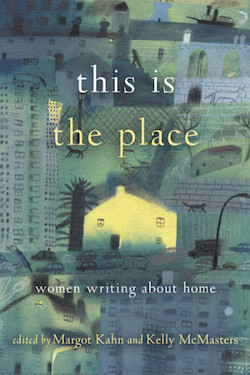
It’s been a few years since Horses That Buck came out. What have you been up to between then and now?
I've been mostly raising a small human being, and that has occupied a lot of time. I've also been doing some writing for a couple of freelance publications — Edible Seattle and a couple of other places.
How did the idea for this anthology come to you?
As I said, almost seven years ago I had a baby, and I found myself at home more than I thought I would be as a parent.
I don't really know what I was expecting. I guess in part I did expect that I was going to take a brief leave of absence from the Hugo House and then return. And when it was time for me to go back, the House was in a bit of a different place than when I left it. I look back on that and think I probably should have done it, but they were asking me to do even more than what I had been doing when I left and I just didn't feel like I could at that moment in time.
At that time, I don't think anybody at the House had had a baby, and part of what seemed overwhelming to me was, I didn't know where I was going to nurse, and I didn't think anybody was going to get what I was going through, and there were sort of no parameters put into place for someone having a kid, and I just didn't feel like I could advocate for myself and my time in that way.
So anyway, I stayed home and got to thinking. When I was growing up I spent a lot of time at my grandparents’ house. My grandparents had come to this country from Poland as World War II was getting started — they got out at basically the last possible moment. When I was with them when I was younger, I would always ask them to tell me stories about their growing-up years, and they had these wonderful, nostalgic, beautiful, fond memories. But also their stories of home were wrapped up with a lot of pain and they really only talked about home when I asked them to. I always carried that with me, and I really was always trying to understand what that must have been like for them, to leave a place that they loved so dearly to never go back, and to make a whole new life somewhere else.
And then fast-forward to my having a child and thinking about what making a home means — not just for myself but for someone else. And in between there was the general kind of moving about in one's 20s — or many people in their 20s, anyway — where, you know, it's one rental after another and kind of trying to decide where to live.
And then I was settling on a place that I felt good about, while not really totally understanding at the time that I was settling down. And then I was becoming a part of a community and buying a house and putting down roots somewhere, when that somewhere isn't the same place where my family is. At some point, it's like, “oh, wait! What have I done?”
All of those things sort of fed into my thinking about what makes a home. And every other perspective about homes that I read was really informative, and so this idea of an anthology, of a collection of voices of many different people grappling with the same idea, became really interesting to me.
The rule for anthologies is generally to make the theme as specific as possible. But this is a super wide-angle topic that goes in the opposite direction of that rule. But it works! Was it hard to get your contributors to stay on topic, or did people just immediately get what you were what you were going for with the theme?
I think people really did get what we were going for.
Where the work came was in whittling things down. That was really the hardest part. We wound up having a few pieces about moving around a lot, and we didn't want a few pieces about moving around a lot. We wound up getting a couple pieces about living in a very small space, and we had to choose one of them. We had a couple pieces about living in the West and sort of hardscrabble solitude and we had to choose one.
That’s the work I'd say came in in the curation. And we were very committed to having a diverse range of voices in every aspect we could think of, from age and geography and race and ethnicity to subject matter. All the things that we read were pretty amazing, and it was a question of which pieces are hanging together, and which pieces speak to each other.
Who belongs here? Who is welcome? Who is a part of this community?
Was the book always specifically related to women’s perspectives on the home?
It was, but we did grapple with that question. Kelly and I said to ourselves, and each other, "are we losing anything by not having men be a part of this? Are we perpetuating a stereotype that the woman's place is in the home? Are we marginalizing men in some way? Are we creating something that is not taking the dialogue in the direction that we can or should be going?"
Ultimately we what we came to is that traditionally and historically, the home has been seen as the domain of the woman. We wanted to address that — in this day and age, what does that mean for women? And in large part, we've been raised by our mothers and grandmothers — in fact, that is a thread that we saw throughout the book: mothers or grandmothers appear in almost every essay. And women's voices are still statistically not as represented [in publishing], so we wanted to have this place for women's voices to be heard, with [Seal Press,] a press that has been dedicated to publishing women's voices since 1976.
One interesting thing to both me and Kelly is that when we conceived of this book it was three years ago and we were really not thinking so much about politics. We were honestly thinking about own our own personal stories and wanting to hear other personal stories. And then it became a possibility that we were going to have a woman in the White House. It was going to be a whole new ballgame. And then suddenly that was not the case at all.
And so many of those issues come up in this book in some way, shape, or form. This thread of belonging, this sense of safety, and the longing that is at the heart of our assumptions or perceptions or being. That image of what home should be. And that feeling that we're seeking, and all the conversations we're having now on the national political stage, really boil down to the same questions: who belongs here? Who is welcome? Who is made to feel safe? Who is a part of this community?
What’s next for you? Another anthology?
I haven't thought about the next anthology, but I would be psyched to do one. I had so much fun working on this book. I never really thought that anthologies would be something that I would do, but having done it, it's like it's like the best kind of curation project — like organizing the best dinner party ever and inviting the most interesting, awesome people and having this fantastic conversation. So, yeah, I would do an anthology again for sure.
I'm thinking about doing another biography, actually. I said I would never do that again after the first one just because it took so long, and I got so involved in other people's lives, but there is somebody I'm interested in writing about.
And I also have started a novel that’s set in a community garden in Seattle. it’s about community and gentrification and gardening. I don't know if that's really going to happen, but that's sort of a fun side project.
Book News Roundup: Amazon has too much money to spend
Congratulations to Tim Lennon, who was announced as the Executive Director of LANGSTON, a new Seattle nonprofit that will "guide programming intended to strengthen and advance community through Black arts and culture." I worked with Lennon at Elliott Bay Book Company right after he moved to town in 2001 and we've been friends ever since, so I can't claim any objectivity, but his career in the years since — at One Reel, heading up Vera Project, working at the Office of Arts & Culture — demonstrates that he'll be excellent at this. I look forward to seeing what LANGSTON contributes to Seattle's arts and literary communities. Lennon starts in January of next year. And if this post didn't have enough conflict-of-interest in it for you already, the best account in local media of Lennon's new job is from my old associate Brendan Kiley at the Seattle Times.
Kirkus interviewed Chin Music Press editor Cali Kopczick about the trends she's spotted in publishing, what manuscripts she'd never like to see again, and what's unique about Seattle's Chin Music.
Yesterday, Amazon's television division paid a crazy amount of money to make a Lord of the Rings prequel TV show. There's not much information about this, but the deal is so huge that it seems to be tempting fate:
In its quest to launch a hit fantasy series of the Game of Thrones caliber, Amazon has closed a massive deal — said to be close to $250 million — to acquire global TV rights to The Lord of the Rings, based on the fantasy novels by J.R.R. Tolkien. The streaming service has given a multi-season commitment to a LOTR series in the pact, which also includes a potential spinoff series.
I dunno about you, but when I see a quarter-of-a-billion deal with multi-season franchise commitments, I think of the recent collapse of Universal's awful "Dark Universe" megafranchise, and then I think of an old cliche about counting baby chicks before they hatch. And then I think of all the people living under bridges in this city and I start to feel queasy.
The comics industry is going through its own sexual harassment crisis, and Heidi MacDonald at the Beat has been keeping good track of it all. Hopefully when we get to the other side of all this and the predators have been shaken out, we'll see a more inclusive, less white-male-centric comics industry.
And if you think the children's book industry is free from sexual harassment, you should read this thread:
Two Fridays ago I met up with a man who works at a children's publishing company to discuss making a book together in which he tried to manipulate me into having sex with him. I reported him to HR. Been waiting to see if they actually handle this and how.
— Charlyne Yi (@charlyne_yi) November 14, 2017
- Book sales declined slightly last quarter. Personally, I blame Trump.
Walking around Seattle with Jane Jacobs
Published November 14, 2017, at 11:54am
Taking the audio version of Jane Jacobs's urbanist classic The Death and Life of Great American Cities out on a walk through Seattle is like reading a great piece of writing with an editor.
Once Upon an Accountant
Once upon a time
an accountant there was
who numbers lovedAnd every day
numbers flew in
and numbers floated away
and days were numbers
and also gloves and boots and
numbers counted the noodlesin his soup as he ate it
Until one day began
the numbers to slip
their shapes, to stand
up off their stools, to spool
into nests of number
and start to napAnd grew afraid the accountant
and strung up by elbows
the numbers and
to their chairs
he tied them with garden
twine and wireAnd could not move
the numbers now or wave
or cartwheel their dance,
their fountaining over
each other all over, forgot,
the way they rose to the top
and tumbled down
began to be a dreamUntil at last sneaked out
the accountant from his corner
to cut with nail scissors
the bonds, to filch
from the window an inch of air
to nudge a number, struggling,
to the sill and watch it, gasping,toss itself out over into
the hedge. And then its brother.
And then its mother. And then
its son. Each number went.
Except for one.And since that day ever
holds he the zero
to himself, at center chest,
hand over its open mouth
so hear he cannot
the tiny ringing cry: alone,
alone, alone,
alone.
Read "Strong is the new sexy" from sponsor Kelly Davio
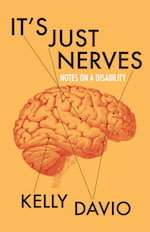
When Kelly Davio left Seattle in 2015, she was the most requested name for our Exit Interview series — a tribute to how much this community hated to see her go. We haven't lured her back yet, but she's here this week in spirit to sponsor the site and share an excerpt from her latest book: It's Just Nerves: Notes on a Disability.
Davio is a poet, an essayist, and poetry editor at the Tahoma Literary Review. She also has myasthenia gravis, a disease she examines in It's Just Nerves without self-pity and with zero patience for society's failure to meet her disability halfway. The range of this collection — from personal reflections on the vulnerability of illness to sharp critiques of everything from Britian's NHS to the 2015 AWP meeting in Seattle — is simply stunning. Read "Strong is the new sexy" for a taste, then pick up the book and keep going.
Sponsors like Kelly Davio make the Seattle Review of Books possible. Did you know you could sponsor us, as well? If you have a book, event, or opportunity you’d like to get in front of our readers, send us a note. We’d be delighted to reserve a spot for you.
Your Week in Readings: The best literary events from November 13th - November 19th
Monday, November 13th: Jade City and This Mortal Coil Reading
Portland sci-fi author (and Seattle Review of Books contributor) Fonda Lee comes to town with her newest novel, Jade City. It's about an island that has been protected by magic-users for generations. Lee brings her fellow Portland author Emily Suvada along with her; her latest is about a girl on a quest in a future where genetic engineering has become commonplace. University Book Store, 4326 University Way N.E., 634-3400, http://www2.bookstore.washington.edu/, 7 pm, free.Tuesday, November 14th: Three Sci-Fi Authors
Tonight, the local science fiction community — more specifically, the local branch of the SFWA, or Science Fiction and Fantasy Writers of America—get together with a giant reading from three up-and-coming members of the local scene: Louise Marley, David Levine and Tina Connoly. You should go and find a new favorite. Also, maybe you should ask where the hell the extra “F” has gone in the “SFWA” acronym. Wilde Rover Irish Pub & Restaurant, 111 Central Way, Kirkland, http://www2.bookstore.washington.edu/, 7 pm, free, 21+.Wednesday, November 15th: Pie and Whiskey Reading
See our Event of the Week column for more details. Washington Hall, 153 14th Ave, http://washingtonhall.org, 7 pm, $10, 21+.Thursday, November 16th: Imaginary Vessels & Banana Palace Reading
Paisley Rekdal was born and raised in Seattle. She returns to town tonight with Imaginary Vessels, a book of poetry about war and the cost of war and what is lost to war. Rekdal is joined with her fellow Copper Canyon poet, Dana Levin. Elliott Bay Book Company, 1521 10th Ave, 624-6600, http://elliottbaybook.com, 7 pm, free.Friday, November 17th: Technically Wrong Reading
Subtitled Sexist Apps, Biased Algorithms, and Toxic Tech, Technically Wrong is Sara Wachter-Boettcher’s attempt to explain why the male bias in the tech industry is creating a culture that places the needs and interests of men light years ahead of those of women or nonbinary individuals. Impact Hub, 220 2nd Ave S, https://impacthubseattle.com, 7:30 pm, $5.
Saturday, November 18th: This Is the Place Reading
Get a load of this lineup of Seattle authors: Claudia Castro Luna, Tara Conklin, Elisabeth Eaves, Kate Lebo, Jane Wong, and Maya Zeller. They’re all joining Seattle writer Margot Case for a celebration of the new anthology she edited, This is the Place: Women Writing About Home. Elliott Bay Book Company, 1521 10th Ave, 624-6600, http://elliottbaybook.com, 7 pm, free.
Sunday, November 19th: An Evening with David Sedaris
Okay, look: David Sedaris tickets aren’t cheap, it’s true. They’re even less cheap now that most of the cheap seats have sold out for his Benaroya Hall appearance. But Sedaris is one of the only authors in the world who is continually worth it. He’s funny, he’s quick-witted, he loves performing his work for a room full of humans. You won’t regret the investment into this one. Benaroya Hall, 200 University St., 215-4747, http://seattlesymphony.org, 8 pm, $108.Literary Event of the Week: Pie and Whiskey at Washington Hall
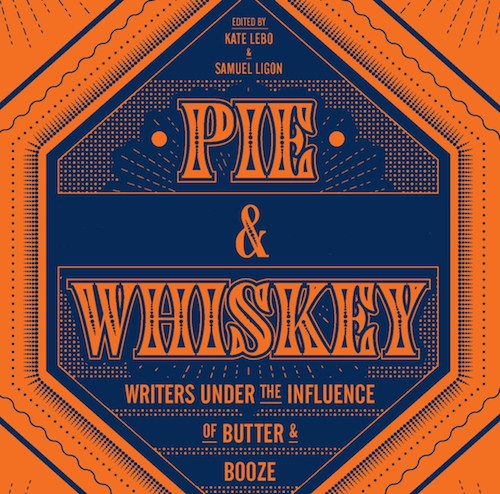
Pie and Whiskey is a popular reading series in Spokane and Missoula. Headlined by ex-Seattle author Kate Lebo and Sam Ligon, the series offers writers that most blessed of gifts: a theme.
Themes are a blessing, but some themes are too broad to work with, and others are too specific. Ask ten thousand writers to come up with stories about “war,” for instance, and you’ll get a spray of stories in response that will be impossible to categorize. But ask them to tell stories about the Battle of Thermopylae in particular and you’ll likely get too many stories that are way too similar.
But “pie and whiskey” falls right into the Goldilocks zone of themes. People love whiskey and people hate whiskey. Most right-thinking Americans love pie, but there are lots of different kinds of pie. The words evoke the idea of indulgence — likely, overindulgence —and warmth and togetherness. Pie is family, whiskey is friends. Both can go wrong.
Like any great anthology, the outliers in the new Pie & Whiskey collection are the chapters that grab your attention first. Shawn Vestal, for instance, writes a short piece about Frito Pie that stretches the definition of “pie” to its breaking point. But many of the very best pieces hew right to the heart of the theme: Gary Lilley’s poem “Meet Me in the Bottom” ends with a line that sums the entire anthology up in a handful of syllables: “I need to get the cold out of my bones.”
Standout contributors to Pie & Whiskey include Ed Skoog, Debra Magpie Earling, Margot Kahn, and Nicole Sheets. The book also contains some recipes for pie and cocktails; I haven’t tried any of them, but I have eaten Lebo’s pies before and I can attest to their extreme deliciousness. Lebo teaches pie-making classes, so if you follow the directions you’ll likely come away with something resembling a good pie.
This Wednesday, Town Hall will present a Pie & Whiskey reading at Washington Hall. Tickets are ten bucks, but that gets you a shot of whiskey. (This reading is for 21-and-over-types; I suspect that we teetotalers are pretty much screwed when it comes to discounts, though maybe you can will your entry shot over to a friend.) Readers include Ligon and Lebo, along with Tod Marshall, Elizabeth Colen, Robert Lashley, Jess Walter, Kristen Young, Lilley, and Vestal. Lashley, Lebo, and Walter are world-class readers. The other folks on the bill are pretty great, too. And even if half of the readers were having an off-night, there’s still likely to be plenty of carbs and booze onhand to keep you warm.
Washington Hall, 153 14th Ave, http://washingtonhall.org, 7 pm, $10, 21+.
The Sunday Post for November 12, 2017
Each week, the Sunday Post highlights a few articles good for slow consumption over a cup of coffee (or tea, if that’s your pleasure). Settle in for a while; we saved you a seat. You can also look through the archives.
The Unforgiving Minute
Laurie Penny delivers a not-that-gentle-but-still-sorta-loving ass-kicking to men who are worried that the so very long overdue public outrage over sexual assault by men in positions of power feels awkward and uncomfortable.
We are not done describing all the ways this shit isn’t okay and hasn’t been okay for longer than you can believe. We want you to make space for our pain and anger before you start telling us how you’ve suffered, too, no, really you have. We are angry, and we are disappointed.
Because you made everything precious in our lives conditional on not making a fuss.
Because you behaved as if your right never to have to deal with anyone else’s emotions or learn the shape of your own was more important than our very humanity.
Because you made us carry the weight of all the hurt that had ever been done to you, and then you praised us for being so strong.
Because we tried for so long to believe the best of you, because it felt like we had no other option.
I promise you will survive our rage. We have lived in fear of yours for so long.
When You Can’t Throw All Men Into The Ocean And Start Over, What CAN You Do?
Ijeoma Uluo delivers a not-that-gentle-but-still-loving ass-kicking to pretty much everybody in this “broken, abusive, patriarchal (and white supremacist, ableist, hetero-cisnormative) trash” society. But in a hopeful way. No, really.
I have not yet figured out how to drive all men into the sea. I’ve considered maybe taking a boat to the middle of the ocean to start shouting about the wage gap to see how many men would try to swim over to tell me that it doesn’t exist. But I’m very fond of a few men (including the two I gave birth to — nepotism, I know) and I also get really seasick on boats.
So if we can’t drive all men into the ocean and start over, do we just throw up our hands? Do we just excuse this rampant abuse as “locker-room talk” and “locker-room groping” and “locker-room rape” and “locker-room forced witnessing of masturbation”? Do we continue to insist that we do not have a toxic masculinity problem and these are just isolated cases of sick individuals who are abusing women and let everyone else off the hook?
The Liberal Landgrab
Bookslut founder and red state resident Jessa Crispin has a few sharp words for blue-staters who think moving to her town is an act of political heroism.
Problems are never solved by invasion. Storming into a place because you think you know more than its inhabitants about how things should be is ignorant and dangerous. If you want to make a difference in the way this country is run, maybe start with where you are. Start by seeing that the income inequality of New York City is as bad a cultural issue as the perceived homophobia and misguided voting patterns of the Midwest, and you’ll start to see how you have just as much opportunity to effect change where you are.
Cowboy or Terrorist? Harney County and the Trump Presidency
In a sweeping and thoughtful essay, Nora Brooks examines how the myth of the American cowboy has been used by con men from terrorists to Trump to suppress exactly the values it’s supposed to represent: independence, self-sufficiency, and the equally misused ideal of Real American Freedom.
One day on the campaign trail, Trump pulled into Las Vegas. A group of Black Lives Matter protesters showed up at his rally to register their disapproval. One was dragged from the ballroom across the floor by a knot of security guards. Trump supporters called out encouragement: their ideas including kicking him, shooting him, and lighting “the motherfuker on fire.” Some yelled out “Seig heil.” Trump’s response was that “maybe the protestor should be roughed up.”
The next time Trump was in Vegas, he lamented the passing of a time when protesters would have been “carried out on a stretcher.”
Trump has convinced his supporters he will give them a frontier America again — the “good old days” as he put it, when anyone was free to run someone out of town simply because they were not us.
Teen Girl Posed for 8 Years as Married Man to Write About Baseball and Harass Women
And, finally: At age 13, the thing Becca Schultz wanted most was to write about baseball. So she did what any aspiring young journalist would do: created a male identity that she maintained online for 8 years, publishing under the name Ryan and eventually forming relationships with women via Twitter in which she harassed, manipulated, and verbally abused them.
Yes, this is clearly a troubled young woman; yes, she did terrible damage and unforgiveable damage to other women. Once you reach the point of threatening suicide to procure nude photos, you’ve gone far past “I’d like more writing gigs.” And still: this is the story of a young girl who believed that she could succeed mostly easily if she pretended to be a man, and who believed that behaving as if she hated women would make that deception convincing. That’s a heartwrenching mirror for us all to look into, as if the last few weeks haven’t provided ugly mirrors enough.
Last weekend, Ryan Schultz made some sort of misogynistic joke on Twitter that elicited a lot of anger and criticism, multiple women told me; Saturday night, the @rschultzy20 Twitter account was deleted. (It has since been restored, and again deactivated.) After this incident, women started talking about having been harassed by Ryan for years, and on Monday night, four writers began searching for the wife to whom he constantly referred to offer support to her and their two supposed children. They feared Ryan’s erratic and harmful behavior might be affecting his family most.
They couldn’t, though, find any evidence that his wife, Blair, even existed. Then they realized that the university Ryan said he was attending while working on his pharmaceutical degree didn’t have a pharmacology school. Finally, after looking at the Facebook pages of Ryan’s family members, they realized that he was not mentioned by any of them and wasn’t in photos with the children he had presented as his, and that another Schultz, Becca, seemed to have an awful lot in common with Ryan.
Seattle Writing Prompts: Elephant Car Wash
Seattle Writing Prompts are intended to spark ideas for your writing, based on locations and stories of Seattle. Write something inspired by a prompt? Send it to us! We're looking to publish writing sparked by prompts.
Also, how are we doing? Are writing prompts useful to you? Could we be doing better? Reach out if you have ideas or feedback. We'd love to hear.

The truth is, the sign kind of eclipses the business, which is some kind of platonic capitalist ideal — it's better to draw customers than to keep them, although we all hope to do both. The business started in 1951, but the location we think of most, on Battery Street, opened in 1956. It does what it says on the tin — washes and details cars. Unlike the more modern Brown Bear franchise, Elephant sells packages that are hands on. Young men with soft cloths will buff your car and make it smell good, in that way that "air fresheners" and soapy chemicals might.
But that sign — my god, that sign. It's appeared everywhere, like there's a fine if you make a montage of Seattle without including it. As much as the Space Needle, it centers you in our city. But it also centers you in a particular time in our city. When you could drop in at Hat and Boots to get gassed up, head over to Elephant for a wash, then maybe over to Twin T-Ps for dinner. It's a certain roadside kitsch, modern America stretching her capitalist arms to the greatest generation, and setting its weird culture into the minds of those young impressionable Boomers.
Open nearly every day since the 1950s. You can imagine a number of people have come through that car wash. You can imagine all the stories that have happened.
Today's prompts
The Cadillac was spattered with mud and needed a good scrubbing, but nothing about it seemed off until they popped the trunk. Sometimes, the mud on a bumper went under the lip, and the only way to really buff it was to get under. So, someone went up and popped it, while the other fellow at the back leaned in and started cleaning. And then, reeling backward, cried out: "get the cops", before gaining his feet and retching in a waste bin.
Rainy days were slow days. Everybody knew that. But then the man in the long trench coat and over-sized fedora came in the door, a steady roll of water dripping off the front of the brim. "How man can you handle?" he said. — "Pardon, sir?" — "How many cars? How many can you do by the end of the day?" — "Uh, sir, how many you got?" — "You won't believe me if I told you," said the man. "Can you do one thousand?" — The clerk laughed, clearly this man was joking. But not only did he keep a straight face, he didn't even blink. "Uh, no, sir. I don't think we could do a thousand cars in one day." — "Fine, then. Do you know who can?"
She couldn't find her lighter in her purse, and her searching was frantic. After the man in the striped shirt offered her a light, she imagined how she looked, scarf on her head, sunglasses on even though it was overcast, digging through her bag like a mad woman, hands shaking. "Are you okay?" he asked, taking the seat next to hers, and touching her arm. She nodded, curtly, drew on her cigarette, and moved her arm away. She looked at her wristwatch — they said the car would be done by now. "Do you want to talk about it?" he said, leaning in. "Sometimes the best thing that can happen is a nice person listening very careful." — "I most certainly do not," she said, sharply. Loud enough that people around her turned to look. "Thank you for the light," she said, more reserved, and stood to cross the room, to look out the window.
Jared and Courtney competed for tips, of course, but they also compared tips at the end of the day. It was a combination of how many cars could they turn in an hour, plus how nice of a job could they do. Tips were but one way to measure it, and the competition made it go by a lot quicker. It was the two BMW wagons, one right after another, that gave them the greatest race of the day. Jared took the red one, and Courtney took the black. About half-way through, Malcolm came up to Courtney, "You know that car belongs to Jared's mom, right? You are being set up, my friend."
Every car has a story, because every person has a story and car is owned by a person. When did they buy it? Why this car? Was it a matter of money or a matter of taste? But what can you say about the man who drives an Edsel? What choice, in 1958, drove them to an Edsel instead of Chevy, or a Ford? Why would somebody look upon that heap and decide it was worth driving? And then now, who would drive that ten year old car — still in nearly perfect shape — like they were proud of it and want it washed? That was the question everybody at the car wash was asking themselves, waiting to get a glimpse of the owner when they came back to claim the car.
The Help Desk: Men keep interrupting my reading time and I hate it
Cienna Madrid is observing Veteran's Day; please enjoy this classic from the Help Desk archives. Do you need a book recommendation to send your worst cousin on her birthday? Is it okay to read erotica on public transit? Cienna can help. Send your questions to advice@seattlereviewofbooks.com.
Dear Cienna,
I'm a young woman, I love to read, and I ride public transit. You can probably guess what happens next: do you have any short responses for me to say to men who insist on interrupting my precious reading time? I don't want to be confrontational, but my reading a book should not be seen as an open invitation to flirt.
Liz, #7
Dear Liz,
In the words of Mother Theresa (not that one, another one), “If you didn’t want men accosting you in public you should have never grown dirty pillows.” My advice is slightly more helpful: Either cut them off or get comfortable with the idea of being confrontational. It’s easy! Fun, even!
Try memorizing these simple phrases so you have them ready when someone asks, “what are you reading?”:
“The scratch-and-sniff book of vaginal diseases.”
“Hitler and Pol-Pot: The BFF pop-up book.”
“Sex games you can play with your cat.”
The trick is to make men — many of whom have lived their lives without being made to feel true discomfort at the hands of a woman — feel as uncomfortable as they are making you at that precise moment.
xoxo,
Cienna
Portrait Gallery: Jeffrey Eugenides
Each week, Christine Larsen creates a new portrait of an author for us. Have any favorites you’d love to see immortalized? Let us know
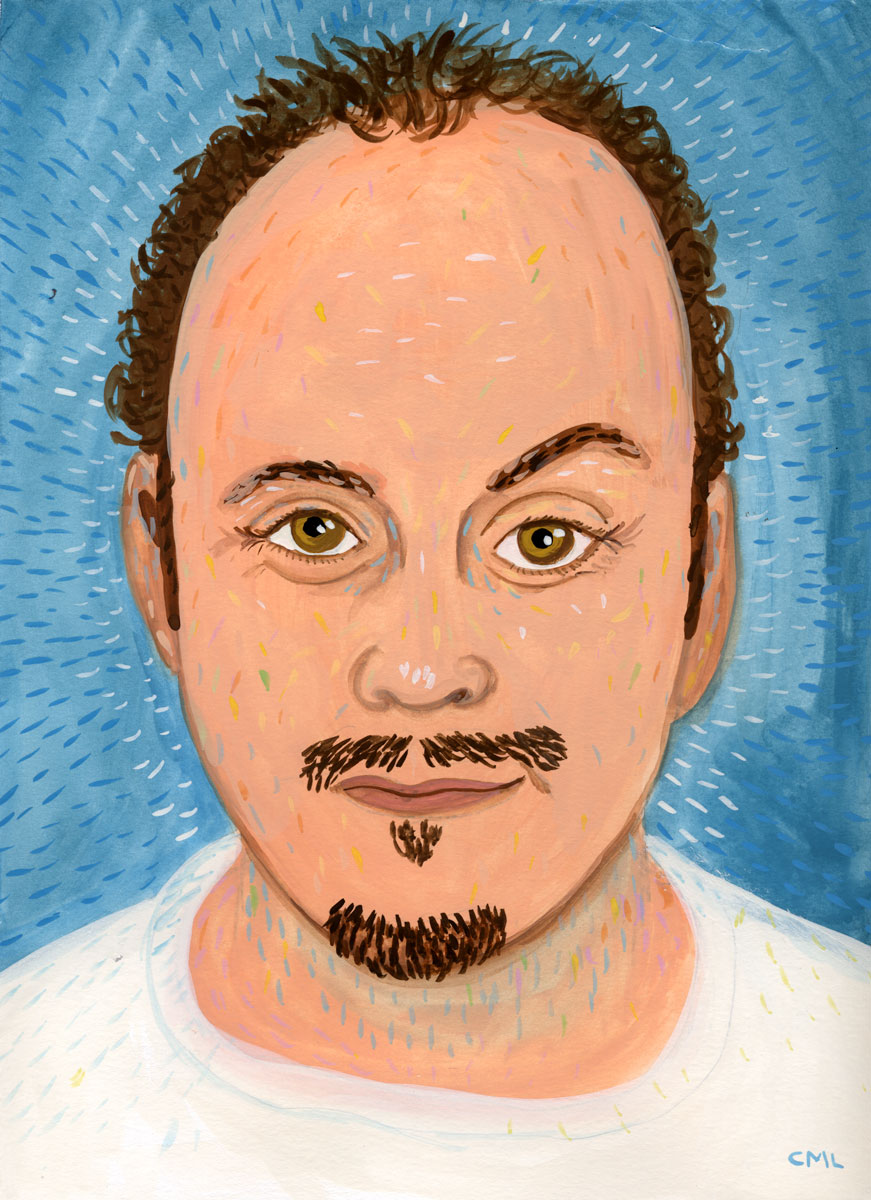
Friday, November 10th: Fresh Complaint Reading
Jeffrey Eugenides is a stone-cold genius writer of novels. If you haven’t read Middlesex, you’re missing one of the finest American novels of the last twenty years; you’ll likely be hooked from the very first description of a fire tearing along a waterfront. Tonight, Eugenides breaks a long silence with a short story collection titled Fresh Complaint. He appears in conversation with Mary Ann Gwinn, who is no longer the Seattle Times book editor but who is still one of the city’s foremost literary experts.
Seattle First Baptist Church, 1111 Harvard Ave, 652-4255, http://www.elliottbaybook.com/event/jeffrey-eugenides-mary-ann-gwinn, 7 pm, free.
Future Alternative Past: impeccable taste
Every month, Nisi Shawl presents us with news and updates from her perch overlooking the world of science-fiction, fantasy, and horror. You can also look through the archives of the column.
Magellanic pseudopods and chipped funkleweed
Food in space! It isn’t always as vividly and goofily named as the cafeteria offerings listed above, lifted from the infamous Pel Torro’s godawful novel Galaxy 666. In fact their polar opposite, the tasteless and efficient food pills are fairly ubiquitous; they make an appearance as early as the Victorian SF story “The Senator’s Daughter” and are heavily featured in Twentieth Century media such as the cartoon series The Jetsons. The closest supermarket reality ever came to the dream of full nutrition in an easy-to-swallow pill was “Space Food Sticks,” a forerunner of modern protein bars which tasted like sweetened library paste mixed with chalk dust and rolled into brown cigar-shapes between dirty, sweaty palms.
Soylent Green, the mysteriously complete protein in wafer form whose ingredients are the icky crux of the 1970s movie of the same name, inspired Soylent brand “meal replacement” powders and drinks. Apparently the recipe for this version differs significantly from the cinematic one.
Vat-grown or printed meat such as Frederik Pohl’s immortal Chicken Little are often presented in SFFH as the food of the plebian masses: cheap and unappetizing, a sort of edible handjob. But they also stir up consideration of ethical questions around vegetarianism, the necessity for the suffering of living beings, and the negative environmental impact of traditional agriculture. The snobbishness evinced against faux foods is at times reversed, with one Jack Vance character, an advanced traveler to parallel dimensions, nauseated at the prospect of having to consume “the enlarged sexual organs of plants.”
But aesthetic issues aren’t always at the forefront of reasons given by SFFH characters for eating artificial meat. The closed ecology envisioned for most interstellar vessels necessitates it. And the low probability of finding nutritionally adequate foodstuffs off Earth necessitates it for longer than the duration of voyages already lasting years, decades, even generations. Working models based on truly rigorous planet-level biochemistry yield systems like that of Kim Stanley Robinson’s Aurora — unfamiliar forms of life inimical to our own. Various authors have dealt with this problem in various ways, including ignoring it, attributing its absence to a panspermian history of the universe, committing their fictional populaces to the eternal operation of huge hydroponics farms, and combinations of all three tactics.
The atevi homeworld described in C.J. Cherryh’s Foreigner series is a somewhat gentler version of the hostile planet-wide habitat; certain spices favored by the natives are pukingly poisonous to colonizing humans. Cherryh’s linguist hero Bren Cameron succumbs to near-fatal food pranking in one of the many nastily humorous cultural clashes she depicts.
A Jewish friend once remarked on the anthropology of keeping kosher, “The best way of maintaining a distinct tribal identity is to have strict rules about what you can and cannot eat, and how, and when, and where…If you can’t share a casual meal with your neighbors, you’re not going to share much else.” SFFH comestibles — including some arguably sentient beings — maintain the genre’s tribal identity by getting us to think about eating in familiarly estranged ways.
Recent books recently read
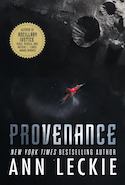
Take, for instance, Provenance (Orbit), Ann Leckie’s standalone follow-up to her multiple-award-winning Imperial Radch trilogy (Ancillary Justice, Ancillary Sword, and Ancillary Mercy). Both high and low class characters eat “nutrient blocks,” though only a former prisoner thinks to hoard them against possible hard times ahead. Provenance is the story of Ingray Aughskold, who stands to inherit her adoptive mother’s wealth, power, and eventually her identity. Between slurping down rehydrated noodles and munching nutrient blocks, Aughskold attempts to execute her daring plan to outshine her brother, the rival for their mother’s heirship. It’s an involved scheme centering on the theft and forgery of “vestiges,” super-sought-after memorabilia collected obsessively in Aughskold’s corner of the fictional Imperial Radch universe. But the plan has far too many moving parts, plus Leckie portrays her heroine as a bit of a klutz, always losing hairpins and accepting villains at face value. Her plan fails — entertainingly, of course. Add a Jack Vanceian flair for futuristic styles of dress and speech and Leckie’s trademark use of pronouns to matter-of-factly deconstruct the gender binary and you have a valiant successor to that rightfully much-vaunted debut trilogy.
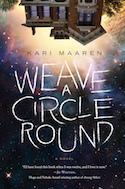
Critics and publicists compare newcomer Kari Maaren, author of Weave a Circle Round (Tor), to Madeleine L’Engle and E.L. Konigsburg. This debut novel certainly introduces readers to charmingly eccentric characters similar to those these vintage authors wrought. But it has its thoroughly modern elements as well: gaming is a legitimate creative venture; mixed race backgrounds are truly background; and blended families are equally unremarkable. The plot resonates nicely with typical youthful angsty outsiderness: 11-year-old protagonist Freddy Duchamp inadvertently goes time-traveling with one of her new nonhuman neighbors and discovers that her sad inability to conform may not be such a handicap as she thought it was…and that her pedantic baby sister and their barely tolerated stepbrother can help her outsmart archetypes-gone-wild who want to rule over her by virtue of the power of storytelling.
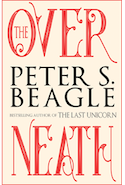
Peter S. Beagle, author of The Overneath (Tachyon) knows that power well, and wields it with the skill of a lifelong practitioner. Though the thirteen stories collected in this latest volume probably won’t change the lives of millions and provide a generation with its standard for what fantasy ought to accomplish — which his classic novel The Last Unicorn most assuredly did — they are lovely, strange, and an utter, heartwrenching joy. Two, “The Green-Eyed Boy” and “Schmendrick Alone,” are Last Unicorn prequels, telling how that book’s belovedly klutzy magician set off and limped along his career path. “Olfert Dapper’s Day” draws on material Beagle found when researching historic unicorn appearances. But my favorite story is the one featuring real-life author and shameless eccentric Avram Davidson, “The Way It Works Out and All.” Perhaps that’s because I so admire its subject, or perhaps it’s because Beagle’s clear-eyed-remembrance-cum-cautionary-tale perfectly sums up how reading this collection feels: like wandering through the Overneath that is its title, the reality between our many worlds.
Couple of upcoming cons
Don’t be fooled by the name: Anglicon is and always has been a decidedly local event. It will take place this coming December in SeaTac’s Doubletree hotel, the “Angli-” content provided, as is customary, by Guests of Honor and programming. Not one but two former Dr. Whos are coming — the fifth and seventh; Anglicon’s panels and masquerade will also reflect volunteers’ fascination with British TV-and-film-based SFFH. Proceeds benefit an area PBS station and British media purveyor.
Smofcon is a sort of meta-convention. In SFFH fanspeak, “smof” derives from the collapse of an ironic acronym standing for “Secret Master of Fandom.” Smofs run cons and other vital SFFH functions, and at Smofcon 35 in Boston this December, Massachusetts Convention Fandom, Inc. will present panels on the best ways to do that. Want to learn how to pick good Guests of Honor? How to run an inclusive event welcoming to all races, abilities, and genders? These folks can help.
